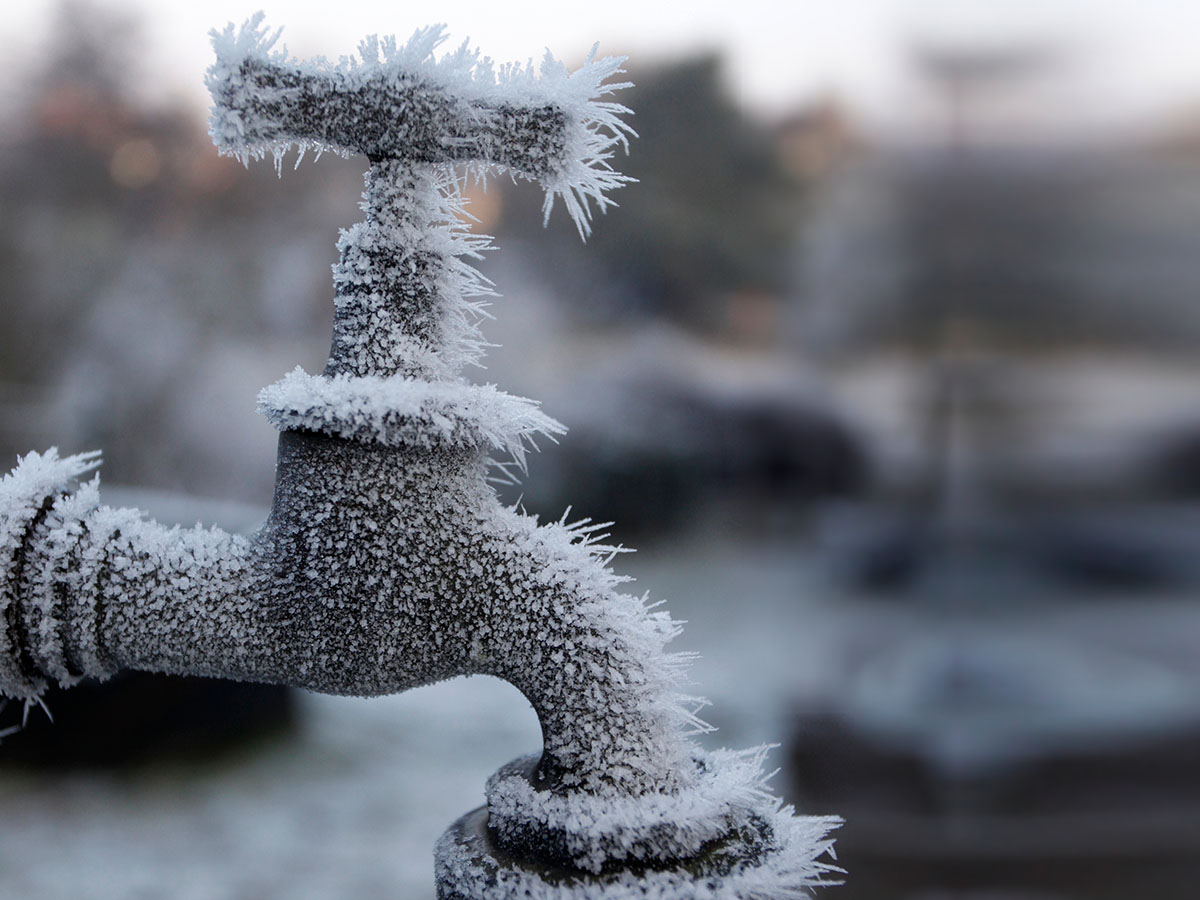Preventing Pipes from Cold Weather: Effective Methods
Preventing Pipes from Cold Weather: Effective Methods
Blog Article
Listed here on the next paragraphs you'll find additional quality information pertaining to Preventing and dealing with frozen pipes.

Cold weather can wreak havoc on your plumbing, specifically by freezing pipelines. Below's exactly how to avoid it from happening and what to do if it does.
Introduction
As temperature levels decrease, the risk of icy pipelines boosts, potentially leading to pricey repair services and water damage. Recognizing how to stop frozen pipelines is critical for house owners in cold climates.
Understanding Icy Pipes
What causes pipes to freeze?
Pipelines ice up when exposed to temperatures below 32 ° F (0 ° C) for extended periods. As water inside the pipelines freezes, it expands, taxing the pipe wall surfaces and potentially triggering them to break.
Risks and damages
Icy pipelines can lead to water disruptions, building damages, and expensive repair work. Burst pipes can flood homes and trigger substantial architectural damages.
Indications of Frozen Water Lines
Determining frozen pipes early can prevent them from bursting.
Just how to identify icy pipes
Search for decreased water circulation from taps, unusual odors or noises from pipes, and noticeable frost on exposed pipelines.
Avoidance Tips
Protecting vulnerable pipelines
Cover pipelines in insulation sleeves or use heat tape to safeguard them from freezing temperature levels. Focus on pipes in unheated or external areas of the home.
Heating strategies
Keep indoor spaces effectively heated up, especially locations with plumbing. Open up closet doors to permit warm air to flow around pipes under sinks.
Shielding Outdoor Pipes
Yard tubes and outdoor taps
Disconnect and drain pipes garden tubes before wintertime. Install frost-proof spigots or cover outside taps with insulated caps.
What to Do If Your Pipes Freeze
Immediate activities to take
If you believe frozen pipes, keep taps open up to ease stress as the ice thaws. Make use of a hairdryer or towels taken in hot water to thaw pipes slowly.
Long-Term Solutions
Structural modifications
Think about rerouting pipes away from exterior walls or unheated areas. Add extra insulation to attics, basements, and crawl spaces.
Upgrading insulation
Buy high-quality insulation for pipes, attic rooms, and wall surfaces. Appropriate insulation assists maintain consistent temperature levels and lowers the danger of frozen pipes.
Verdict
Protecting against icy pipes calls for aggressive steps and quick feedbacks. By comprehending the causes, indicators, and preventive measures, homeowners can secure their plumbing throughout cold weather.
Helpful Tips to Prevent Frozen Pipes this Winter
UNDERSTANDING THE BASICS: WHY PIPES FREEZE AND WHY IT’S A PROBLEM
Water freezing inside pipes is common during the winter months, but understanding why pipes freeze, and the potential problems it can cause is crucial in preventing such incidents. This section will delve into the basics of why pipes freeze and the associated problems that may arise.
THE SCIENCE BEHIND FROZEN PIPES
When water reaches freezing temperatures, it undergoes a physical transformation and solidifies into ice. This expansion of water as it freezes is the primary reason pipes can burst. As the water inside the pipe freezes, it expands, creating immense pressure on the walls. If the pressure becomes too great, the pipe can crack or rupture, leading to leaks and water damage.
FACTORS THAT CONTRIBUTE TO PIPE FREEZING
Low Temperatures: Extremely cold weather, especially below freezing, increases the risk of pipes freezing. Uninsulated or Poorly Insulated Pipes: Pipes located in unheated areas, such as basements, crawl spaces, or attics, are more prone to freezing. Insufficient insulation or lack of insulation altogether exacerbates the problem. Exterior Wall Exposure: Pipes running along exterior walls are susceptible to freezing as they encounter colder temperatures outside. Lack of Heating or Temperature Regulation: Inadequate heating or inconsistent temperature control in your home can contribute to frozen pipes. PROBLEMS CAUSED BY FROZEN PIPES
- Pipe Bursting: As mentioned earlier, the expansion of water as it freezes can cause pipes to burst, resulting in significant water damage.
- Water Damage: When pipes burst, it can lead to flooding and water damage to your property, including walls, ceilings, flooring, and personal belongings.
- Structural Damage: Prolonged exposure to water from burst pipes can compromise the structural integrity of your home, leading to costly repairs.
- Mold and Mildew Growth: Excess moisture from water damage can create a favorable environment for mold and mildew growth, posing health risks to occupants.
- Disrupted Water Supply: Frozen pipes can also result in a complete or partial loss of water supply until the issue is resolved.
WHY CERTAIN PIPES ARE MORE PRONE TO FREEZING
- Location: Pipes located in unheated or poorly insulated areas, such as basements, crawl spaces, attics, or exterior walls, are at higher risk of freezing.
- Exterior Pipes: Outdoor pipes, such as those used for irrigation or exposed plumbing, are particularly vulnerable to freezing as they are directly exposed to the elements.
- Supply Lines: Pipes that carry water from the main water supply into your home, including the main water line, are critical to protect as freezing in these lines can affect your entire plumbing system.
- Underground Pipes: Pipes buried underground, such as those connected to sprinkler systems or outdoor faucets, can be susceptible to freezing if not properly insulated.
https://busybusy.com/blog/helpful-tips-to-prevent-frozen-pipes-this-winter/

We are very occupied with How To Avoid Freezing Pipes and I am praying you enjoyed our blog posting. You should set aside a second to distribute this article if you liked it. I cherish reading our article about How to prepare your home plumbing for winter weather.
Check It Out Report this page